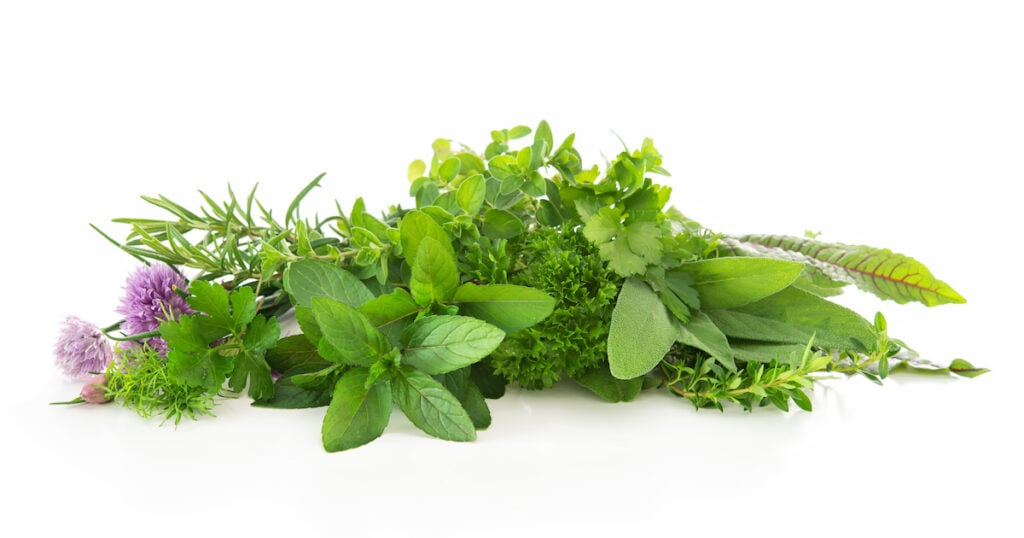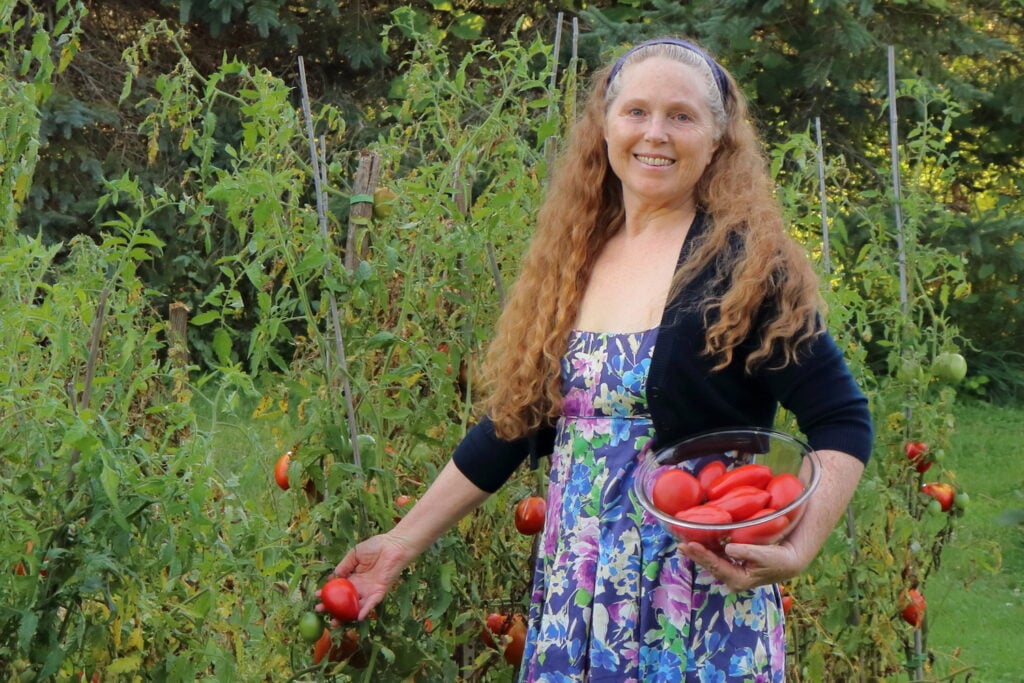Where Nutrients Come From
Sometimes the obvious becomes hidden in plain sight – especially with all of the background noise, incorrect information, and fads permeating our society – noise that I’ve also been fooled by at different times of my life. The truth is, nutrients come from food. A varied, whole-food, plant-based diet is usually perfectly capable of providing our nutritional needs except for vitamin B12 and the sunshine vitamin D. However, I understand that if chronically ill or chronically stressed, your body may temporarily need more of certain nutrients.
So regarding the question “are supplements necessary?” the answer is – it depends.

Nutrients Come From Food
It’s worth re-stating that eating nutritious foods, including culinary/medicinal herbs and spices, is the best way to provide your body with nutrients. The various combinations of nutrients within foods create synergistic and miraculous effects on our bodies. Scientists have uncovered some of these effects, and more of these complex interactions will surely be discovered as time goes on – but we may never fully understand how nutrients interact with each other and the human body.
Supplement Mindfulness
Don’t expect supplements to offer the same results as food; in fact, over time many have been found to cause harm. Too much of a good thing can turn into a very bad thing. For instance, at one time supplementing with vitamin A was all the rage, until it was discovered that too much synthetic vitamin A causes a whole list of concerns, whereas eating foods rich in beta carotene ensures the correct amount is converted into vitamin A as it is needed by our wise bodies. These types of miscalculations and then corrections have happened many times in the world of supplements. Whole plant foods, on the other hand, are consistently proven to be beneficial sources of complete nutrition. Good nutrition isn’t found in a pill, it’s eaten from a plate.
I do understand that there are times when it may be necessary to support the body through supplements. After being chronically ill for over a decade, eating a super clean nutritious whole-food plant-based diet and taking herbal tinctures restored my vibrant health. I must admit though, that taking a modest supplement program was also key to my recovery.
Before Starting a Supplement or Herbal Program
Before starting a supplement program, I suggest consulting with a Naturopathic Doctor, Plant-Based Doctor, or other professional so it can be tailored to your body’s individual needs. Please remember, as far as supplements go, often times “less is more.” Choose clean, high-quality brands – such as Pure Encapsulations.
Before starting an herbal program, I suggest consulting with a qualified herbalist. Herbal prescriptions really aren’t one size fits all and whenever possible should be thoughtfully individualized. The best way to find a skilled herbalist is through word of mouth; the American Herbalists Guild may also be a good resource.

Research
You may find the following research interesting on the topic of supplements.
Brasky, T. M., et al. “Long-Term, Supplemental, One-Carbon Metabolism-Related Vitamin B Use in Relation to Lung Cancer Risk in the Vitamins and Lifestyle (VITAL) Cohort.” Journal of Clinical Oncology, October 2017.
Campbell, T. Colin. Whole: Rethinking the Science of Nutrition. BenBella Books, 2014.
Chen, Fan, et al. “Association Among Dietary Supplement Use, Nutrient Intake, and Mortality Among US Adults: A Cohert Study” Annals of Internal Medicine, April 2019
Ebbing, Marta, et al. “Cancer Incidence and Mortality After Treatment with Folic Acid and Vitamin B12.” Jama: The Journal of the American Medical Association, November 2009.
Satia, J.A., et al. “Long-Term Use of Carotene, Retinol, Lycopene, and Lutein Supplements and Lung Cancer Risk: Results from the Vitamins and Lifestyle (Vital) Study.” American Journal of Epidemiology, April 2009.
Watanabe, Fumio, Yukinori Yabuta, Tomohiro Bito, Fei Teng. “Vitamin B12 Containing Plant Food Sources for Vegetarians.” Nutrients, May 2014.
Welch, Alisa, et al. “Dietary Intake and Status of n-3 Polyunsaturated Fatty Acids in a Population of Fish-Eating and Non-Fish-Eating Meat-Eaters, Vegetarians, and Vegans: Results from the EPIC-Norfolk Cohort.” The American Journal of Clinical Nutrition, November 2010.
Wu, Qi-Jun, et al. “Vitamin E Intake and the Lung Cancer Risk among Female Non-Smokers: A Report from the Shanghai Womens Health Study.” International Journal of Cancer, February 2015.
Judy is a certified holistic nutritionist through the American Fitness Professionals & Associates, and earned the plant-based nutrition certificate offered through the T. Colin Campbell Center for Nutrition Studies. She has also studied herbalism, energy healing, and homeopathy. Judy offers many services, always using a common sense yet intuitive approach to wellness.



No Comments